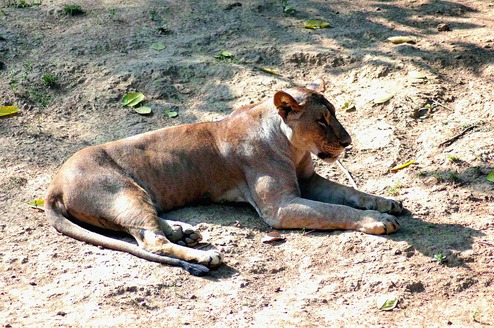
Saraswati, a nine-year-old lioness and one of the main crowd-pullers of Patna zoo, died on Monday night. The zoo is now left with only one lioness, which is around the same age as Saraswati, and three lions.
Patna zoo director Nand Kishore said a team of veterinarians conducted the post-mortem examination on Saraswati on Tuesday and attributed the death to heart attack.
"Saraswati was alright last (Monday) evening. We found her dead today (Tuesday) only. Saraswati must have died during the night. Eight veterinarians, including those from the zoo and from Bihar Veterinary College, today conducted the post-mortem examination on Saraswati. It suggests cardiac arrest as the reason of death," said Kishore.
Saraswati was brought from Hyderabad zoo under an animal exchange programme around seven years ago, he said.
"Lions generally have a lifespan of 12-15 years in the wild but normally live up to 15-18 years in captivity as they are closeted from the elements and get food regularly. In rare cases, lions live up to 20 years in captivity," added Kishore.
Saraswati's death has come as a major jolt to the zoo authorities. Just last week, a three-year-old tiger died at the zoo. The authorities claimed the tiger died due to hyperparathyroidism, a condition in which there is overproduction of the parathyroid hormone, which leads to bones becoming thin and there are other symptoms such as fatigue.
"Initial reports suggested that the tiger died because of hyperparathyroidism but the final test report is yet to come," Kishore said.
The zoo's tiger population has now dwindled to three tigers and three tigresses.
The zoo director ruled out any nutritional deficiency in the animals.
"Patna zoo has been successfully breeding crocodiles, giraffes, rhinos, tigers among others," Kishore said. "The success of the breeding programme shows that the zoo inmates are not suffering from nutrition-related problems."
He said apart from two veterinarians at zoo, veterinarians from Bihar Veterinary College were being consulted at regular intervals for the check-up of the zoo animals.










